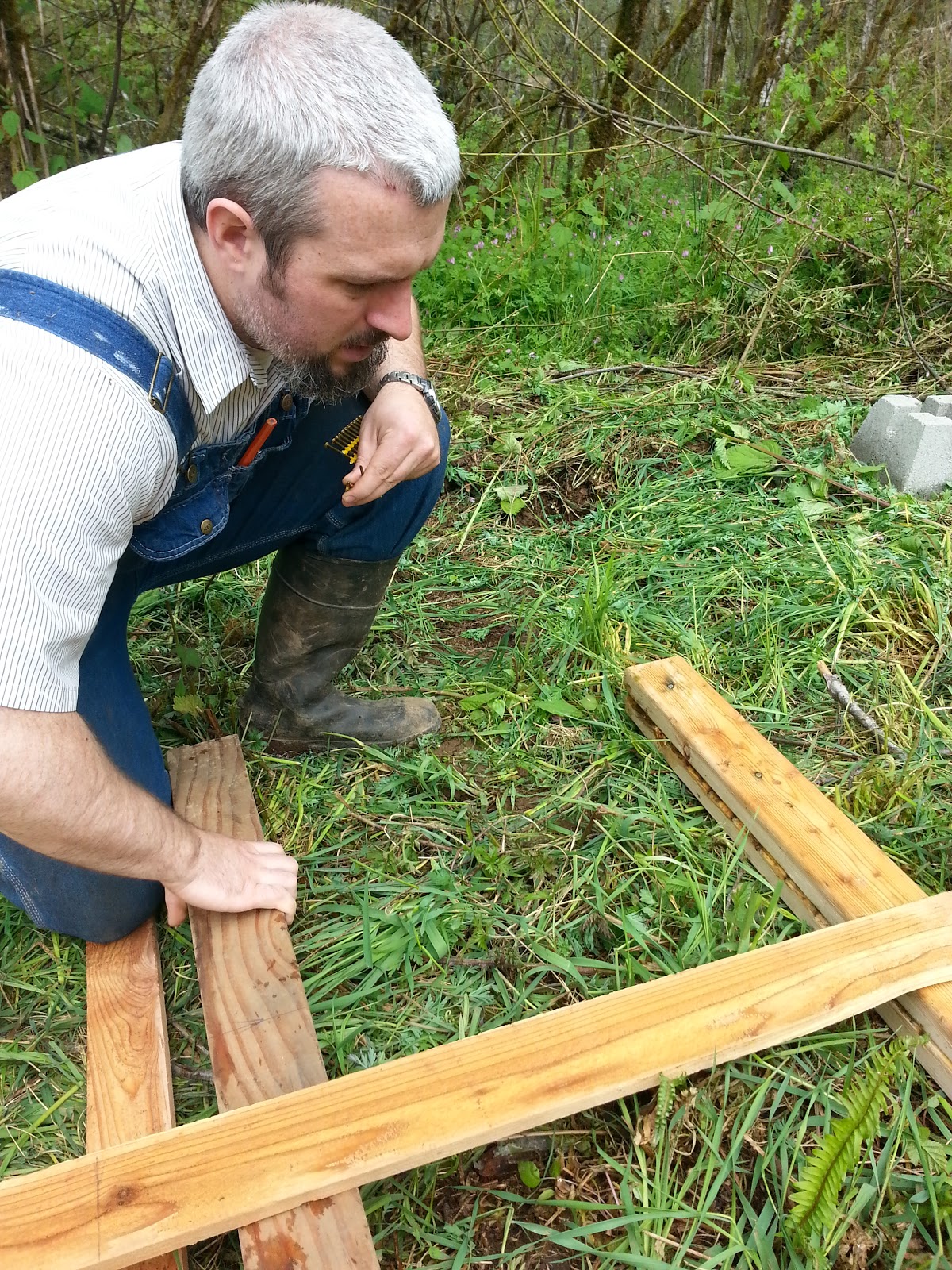Chris and I came up with an awesome way to raise chicks. As far as we know, no one else has done this before, but please don't hesitate to comment below to tell us if you have done this! We would love to share the credit!
This NEW WAY to raise chicks came about because Chris doesn't like to clean up poop. His train of thought probably went something like this:
"I am so excited about baby chicks! BUT I really don't like cleaning up the poop, and you know they poop alot... Maybe Lindsay will do it... (Lindsay shoots glaring eyes in his direction) Nope, that's out of the question... I have worms composting stuff already, I wonder if they will compost the baby chicken poop. I could keep them IN the worm bin and then I won't have to clean anything up! I just have to keep the top from getting compacted...I'll use a cultivator to rake and turn the dirt. OH! and by the way, this will give the little guys a chance to learn how to scratch and eat worms! Great food supplement... This is a really great idea! Let's do it!"
Here are some things that we learned from it:
1.) Don't use newspaper unless it's shredded up really small. It compacts too easily. Instead, use sawdust or wood shavings. These work really great for retaining the moisture for the worms and they don't get too compacted.
2.) Keep the birds in an appropriately sized container. Too many birds = Too much compaction/poop/eating of worms = No more worms = No more worms composting the chicken poop! I'd say that 6 chicks or less in one of those big plastic totes is plenty. We had almost thrice that many. It was too many. (Yes I just used the word thrice! Isn't that awesome!)
3.) Don't forget to add kitchen scraps like onion peels, bell pepper leftovers, and the like. The worms need food, and so do the chicks. They will both benefit from eating these. You will probably still have to feed the chicks some sort of chick feed and grain, but you'll certainly need a lot less of it, and your birds will be healthier. (or so I think)
4.) Don't forget to provide your chicks with some sort of roost. Otherwise, they WILL roost on top of each other and some of your birds may get smothered. Just a warning...
5.) Make sure to turn the worm dirt at least every couple of days. It will keep the "dirt" from getting compacted and give the chicks a chance to eat the worms that are lying below the surface. Chris really liked to get in there everyday, but I think that you could do it every other day and be just fine.
















